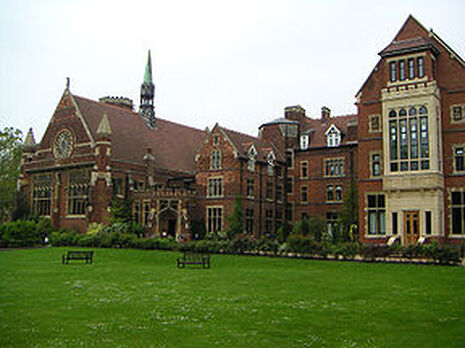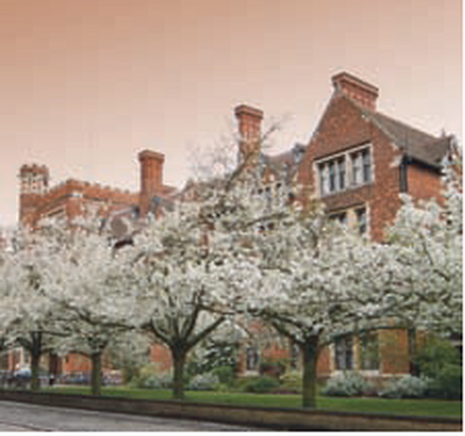Fighting for a Living Wage
Colleges are not paying a living wage to all of their employees.
Almost all Cambridge colleges are not paying living wages to all of their staff, Freedom of Information requests have revealed.
The University itself pays 112 members of staff less than the living wage threshold of £7.20 per hour. As well as all training staff, many employees classified as Grade 1, the University’s least senior staff, are on less than the living wage.
The living wage is a rate of pay that allows workers to afford the basic essentials in life, such as housing, food and utilities. Outside of London, the rate is calculated by the Centre for Research in Social Policy at Loughborough University and is determined annually.
The problem has been identified across Cambridge, not just within the University, that staff are not being paid living wages with Labour and Green councillors pressuring to make Cambridge City Council a living wage employer.
Out of the colleges, only Hughes Hall were able to state unequivocally that all staff are paid living wage, although Jesus said that no permanent staff were on less than the living wage, but offered no such qualification about the casual staff who are not on a fixed contract with the college.
Two of the worst offending colleges are Homerton and Emmanuel who, at the time of the FOI requests by the Cambridge University Labour Club (CULC) in October, employed 65 and 70 people respectively below the living wage.

Homerton told Varsity that all permanent staff are paid above the living wage, while the number of casual workers fluctuates throughout the year.
Some colleges have responded by suggesting that figure may not be truly reflective because of engagement in training and apprenticeship schemes and that the term ‘living wage’ may not be wholly appropriate in that context.
Another common reason cited by the bursars contacted by Varsity for not paying the living wage to staff, and particularly casual workers, is the correlation between staff costs and student charges. In most colleges, staff costs account for between 40-50% of what students pay.
Some also pointed towards generous pension schemes, benefits such as free meals and free parking, and the fact that many casual staff are below the age of 20 and therefore often on much more than the minimum wage.
However, many of the staff paid under the living wage are on permanent contracts. Among them, Selwyn employs 28 permanent staff who are paid below the living wage, Magdalene 30 and Churchill 13.
Many colleges were vague about the number of staff paid less than the living wage; though Downing said 42 employees were on less, it was said that it was the equivalent to 24 full-time staff since most of these employees were part-time.

These are also absolute figures and therefore more likely to be skewed against larger colleges, such as Homerton.
Universities across the country are already beginning to make the commitment to living wage. In 2010 UCL agreed to pay living wage for all their staff after initially making media headlines forrefusing to. They are now one of nine London universities who committed to the move.
Last week it was announced that St John’s College in Oxford had agreed to pay their staff the living wage after the college’s JCR had passed a motion to lobby the college to pay the rate in Michaelmas. The news comes amid a similar campaign for the living wage to be paid across the University of Oxford.
However, the campaign in Cambridge is proving to be slow moving. Although Emma’s JCR passed a motion in support of the campaign last term, as yet many JCRs are still refusing to give formal support to the campaign.
One positive move has come from Peterhouse where 30 members of staff were paid below the living wage. From 1st August this year, the college’s standard pay per hour will increase to £7.24 from the current level of £7.10, and therefore above the threshold.
Yet, despite this, most colleges do not seem to be following suit. When contacted, Selwyn stated that there was only a 1% increase in the last pay round in addition to some of the ‘perks’ mentioned earlier, while many colleges have so far failed to respond to enquiries at all.
 News / SU reluctantly registers controversial women’s soc18 December 2025
News / SU reluctantly registers controversial women’s soc18 December 2025 News / CUP announces funding scheme for under-represented academics19 December 2025
News / CUP announces funding scheme for under-represented academics19 December 2025 Features / Should I stay or should I go? Cambridge students and alumni reflect on how their memories stay with them15 December 2025
Features / Should I stay or should I go? Cambridge students and alumni reflect on how their memories stay with them15 December 2025 Fashion / The art of the formal outfit 18 December 2025
Fashion / The art of the formal outfit 18 December 2025 News / Dons warn PM about Vet School closure16 December 2025
News / Dons warn PM about Vet School closure16 December 2025








